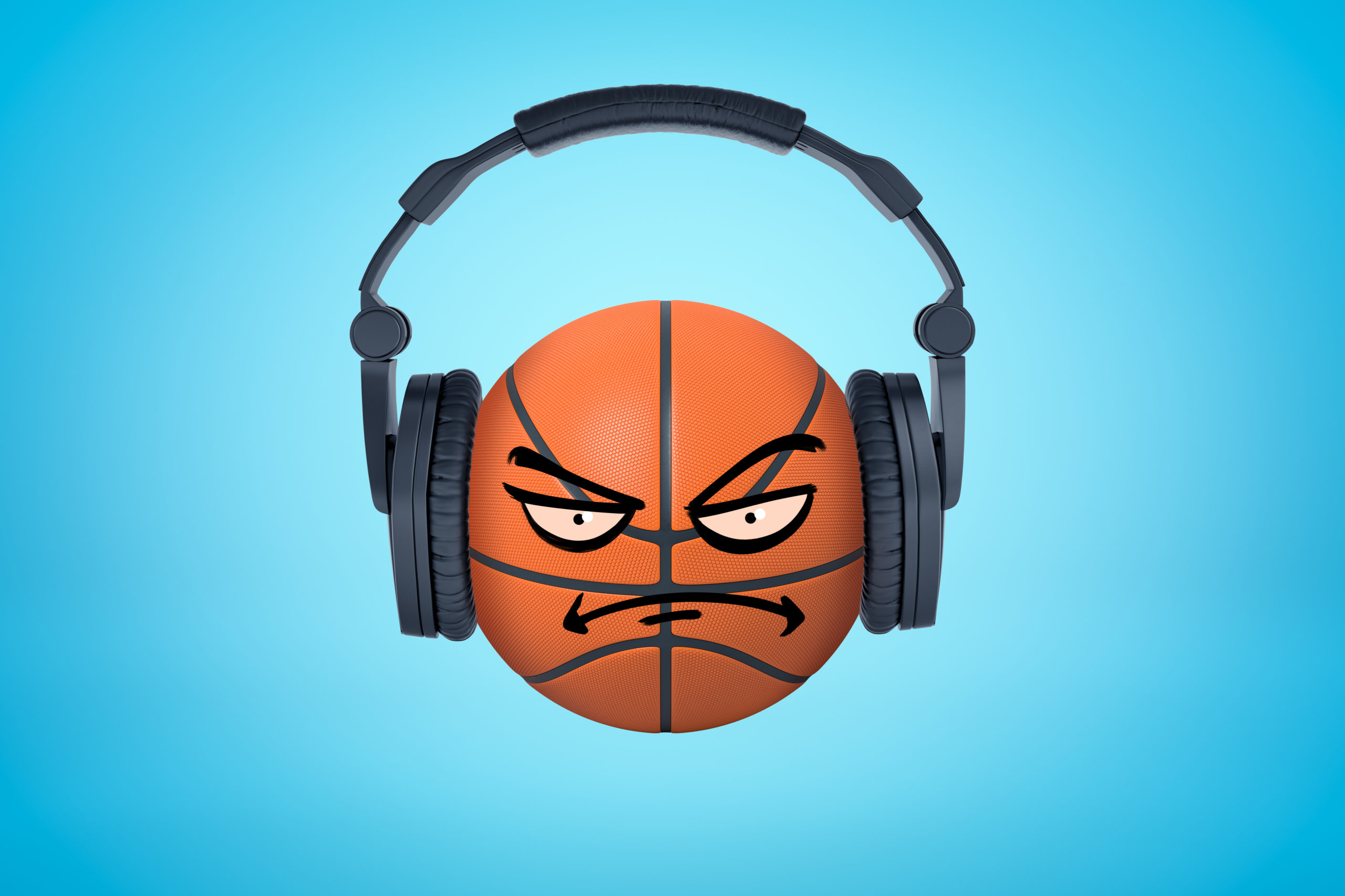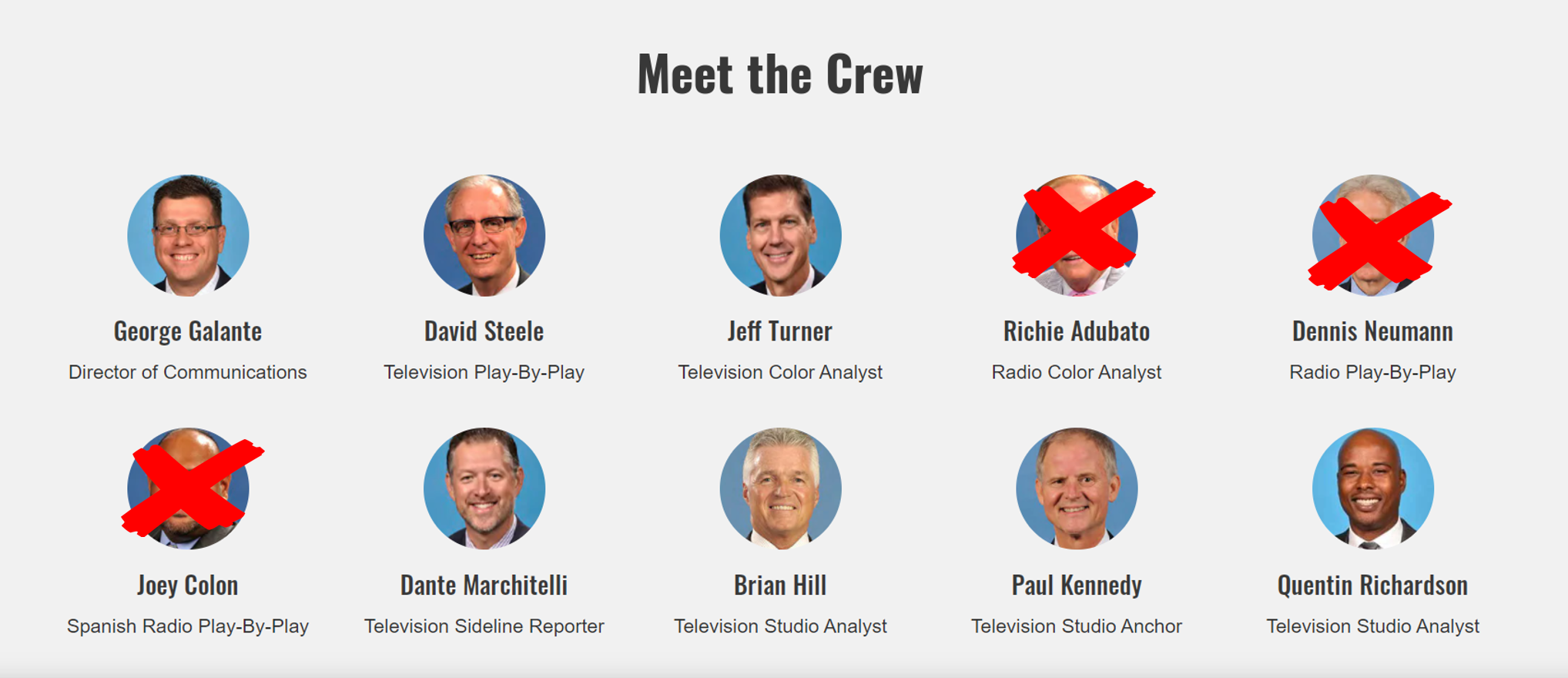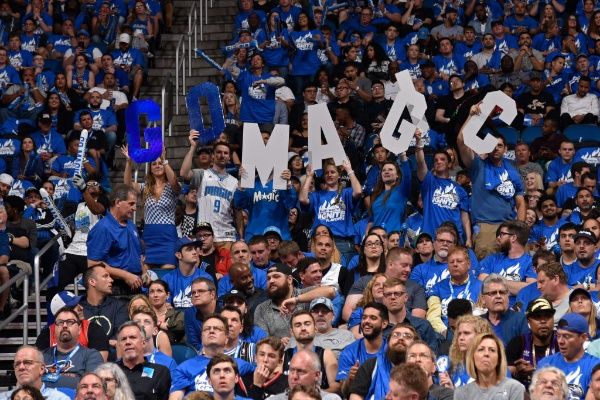
What is it about 2020 anyway? Especially when it comes to sports and radio.
You may remember the story about the Oakland A’s back in February. Even prior to the pandemic, they embraced the brilliant strategy of making their radio broadcasts stream-only. If you lived in the East Bay, the only way you could hear the games was on TuneIn.
That turned out to be a short-lived game plan. Just six games into this year’s shortened season, the A’s relented, signing up with iHeart’s KNEW (Bloomberg 960) to carry the games terrestrially. Why the reversal? Their fans weren’t just confused. They were pissed off.
So, you’d think sports franchise owners would think twice before pulling the plug on radio play-by-play broadcasts. But now here we are nearing the end of the NBA season, and the Orlando Magic have announced their radio plan for the 2020-21 season.
There isn’t one.
The games will still be on the radio. But they’ll be simulcasting the TV audio. The entire radio team has been fired. That includes 29 year-veteran of these Magic radio broadcasts, Dennis Neumann, as well as former NBA coach Richie Adubato, and Joey Colón who has spent the past 22 years broadcasting the games in Spanish.
Of course, the problem is money and the coronavirus. But as we continue to see during this pandemic, companies and brands are often too eager to jettison content pieces that matter.
The Magic’s ownership may think – or maybe rationalize – that the TV sound from FOX Sports Florida will be “good enough” for the radio audience. But sportscasters will be the first to tell you they’re calling a different game, depending on the medium.
The radio “flagship” is iHeartRadio’s FM 96.9 The Game, (also broadcast on AM 740). I’m sure their management team will be thrilled by the phone calls, Facebook posts, and tweets that will most surely kick off the new season, likely blaming them for axing the radio hosts.
Radio requires more detail, more color – more effort – to paint those pictures with words that convey what’s happening on the court, on the bench, and hopefully one day, in the stands.
Plus, you have to wonder what all those instant replays are going to sound like on the radio – where Magic fans can’t see them.
But after all, it’s only radio.
In case you’re wondering, the Magic is owned by the DeVos family. (Yes, that DeVos family.) The cost of these radio broadcasts and those associated with them are but a rounding error, but obviously budget cuts are necessary at this time.
To ownership’s credit, they put up $2 million for a compensation package to support 1,800 hourly workers who worked for the local teams they own, as well as employees from the Amway Center.
But as for these radio broadcasts, well, the writing is on the studio wall.
Because the Magic has failed to update its website, these now-unemployed radio sportscasters are still prominently identified and pictured. I’ve gone to the trouble of adding my own “artwork” – red X’s – to bring them up to date. On the Magic website, clicking on these guys still takes you to each one’s bio.
The website also promote that Colon and Neumann (co)-host weekly podcasts for the Magic. But now, apparently not.

But if you’re in radio, you’re gone. The team is telling its audience, its sponsors, and all who interface with the organization there’s no reason to have radio when you have TV – sound and pictures. Beyond that, the same words they say – or don’t say – on TV will translate to radio. Or at least, it will have to do for now.
Will fans notice? In Oakland, it was obvious A’s games simply were gone from the AM and FM bands. Too many either didn’t know about the TuneIn option, didn’t understand streaming, and/or thought it was a pay-for option.
In Orlando, the slight is a more subtle one. Magic games will still be on the radio – ish. Will fans notice their favorite radio announcers are gone? Or that it’s the TV team on the radio? Or that television play-by-play pales in comparison to its radio equivalent?
 Surely, Latino fans – a rapidly growing segment of the Central Florida population – will know Joey Colón’s Spanish commentary is a thing of the past. Will they complain? And will Magic ownership care?
Surely, Latino fans – a rapidly growing segment of the Central Florida population – will know Joey Colón’s Spanish commentary is a thing of the past. Will they complain? And will Magic ownership care?
Perhaps radio haters and the many radio self-loathers out there will look at this as yet another “L,” a slight that increasingly occurs. Some will contend this is radio’s just desserts = the payback for its lack of investment in content and marketing over the years.
Maybe so, but just as the failed Oakland plan sent a message to MLB’s other 31 teams that taking games off the radio is a dangerous – and dumb – move, will NBA (and NHL) teams be emboldened to employ cutbacks to save some cash by eliminating the radio team – especially in an environment where there are no fans, no hot dogs and beers, and no parking revenue?
A very sad reality of the Magic’s attempt to plump up the bottom line is that many young people interested in radio look to sports radio as their way “in.” And for those of you plying your craft in radio sports broadcasting, there’s no magic answer here. You know your job is a special one, but if the teams that pay for you conclude there’s no downside in axing radio play-by-play, they’ll do it.
Why? Because it’s just radio.
- Media And Technology In 2025: Believe It Or Not! - April 18, 2025
- In Radio, You Just Never Know - April 17, 2025
- The Secret To Making A Great Podcast (And Great Radio) - April 16, 2025




Here we go again, radio and it’s listeners being taken for granted by corporate types who don’t know a damn thing about the art of broadcasting. This is like in the music business, when everyone was happier and made more money when the artists that brought us the greatest music had more sway over the decisions that brought the product to the street. The best radio is when it’s done right, when decisions are made by people who understand the art of broadcasting. The common denominator is that when corporate types buy into these businesses, they only see $$$, and are shocked when they make stupid decisions that hit them in the pocketbook in the long run. Thank goodness, the research and rating are starting to show that listeners are starting to demand quality in their radio again. One law of business that many seem to have forgotten across the spectrum is that you cannot take your customers (or listeners) for granted.
Your last sentence has that loud ring of truth, Kurt. Let’s hope those Orlando Magic fans take notice.
Thanks for sharing this Fred. This will be a good case study for my students. Hopefully Orlando will see the error of their ways,. much like the A’s did.
We can only hope, Bill. Best to you & those kids. Stay safe.
Grr. I remember when I got to L.A. in 1987. The legendary Lakers voice Chick Hearn was simulcast. In that case I think it was more about maximizing Chick’s exposure, as opposed to a cost-saving move. Regardless, listening to the radio broadcasts was painful. Ditto for any other time I’ve been subjected to simulcasts of any sporting event. They’re two very different broadcasts — requiring different approaches — and should be treated as such. A more recent example was last year when the Ravens simulcast a preseason game. (Remember those?) It was a brutal listen. Sure, I’m a radio guy who once harbored dreams of doing play-by-play. I’m hardly the typical fan. So it’ll be interesting to see whether Magic fans notice/care. I sure hope so.
For those of us who know better, it’s obvious. I would like to think fans will be able to tell the difference. Radio PBP is truly an art form. Hopefully, this isn’t the beginning of a trend.
Or the beginning of the end.
I’m reminded of an AM station here in San Diego that, as music migrated to FM a few decades ago, decided to adopt the call sign “KCNN,” and begin simulcasting CNN Headline News. To be honest, I don’t recall what format they switched to about 15 minutes later when it was obvious that was not going to work.
Here’s hoping these latest “experiments” end just as badly…and just as quickly.
Here, here, Dave.
The audio simulcast of Headline News actually was offered for many, many years by Westwood One (which also handled the CNN Radio newscasts and services). It wasn’t very radio-friendly but also wasn’t too bad–and might’ve been helped by the fact that the original Headline News had a very strict clock, with many segments being pre-recorded. (Also, I think that the :25/:55 windows–like with TV–could be used for local cut-ins.) It might’ve even prompted AP Radio to start up its generic all-news format (aka “The News Station”) in the ’90s.
Even today, I think that some of the long-form Bloomberg Radio offerings are actually TV-based.
I remember having the same thoughts about Headline News – on the radio: Not bad, most of the time. But for one of the NBA’s 30 teams – and this one in a growing region – can’t figure out a way to serve its audience and fan base with a great audio product, it’s inexcusable. Thanks, Eric, for the reminder.
If this is strictly a cost-cutting move by the Magic, it’s short-sighted and dumb. Beyond the A’s experiment, we have been seeing a few NHL franchises (notably, the LA Kings) drop out of their pay-to-clear radio deals, and instead focusing those resources on developing their own proprietary apps with exclusive streaming content. I’m not privy to how the app experiments are progressing, but those clubs are at least putting forward an audio product that is designed and executed as audio. They are placing a strategic bet on a D2C audio play, not just chopping costs.
Carl, it makes you wonder how much money the Magic are leaving on the table with this approach. from customer service to pleasing fans to advertiser endorsements, the Magic seem to be taking a short-sighted approach. Thanks for chiming in.
As sad as this is Fred…I’d argue that iHeart, which originates the programming, should re-negotiate the deal to control the production and sales of the radio feed. The Magic can take a split. iHeart is in the best position to maximize merchandising, digital and events. They need to re-assume control of the games IMHO.
None of us knows what went on behind the scenes here Jackson. Ironically, iHeart is involved in the Oakland A’s situation, too, so they’ve been through similar situations. As I wondered in the post, what will the fans think, will they care, and if so, who will they blame?